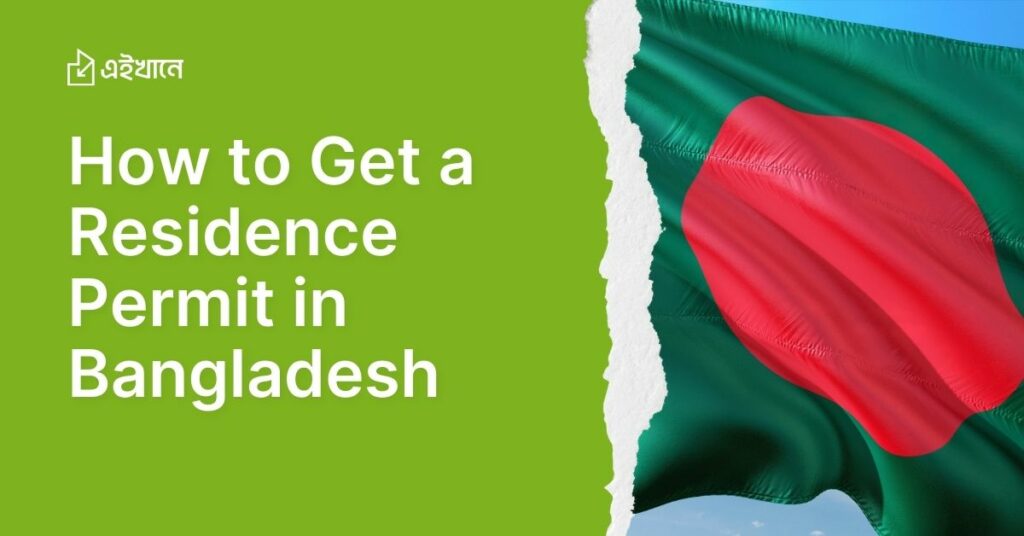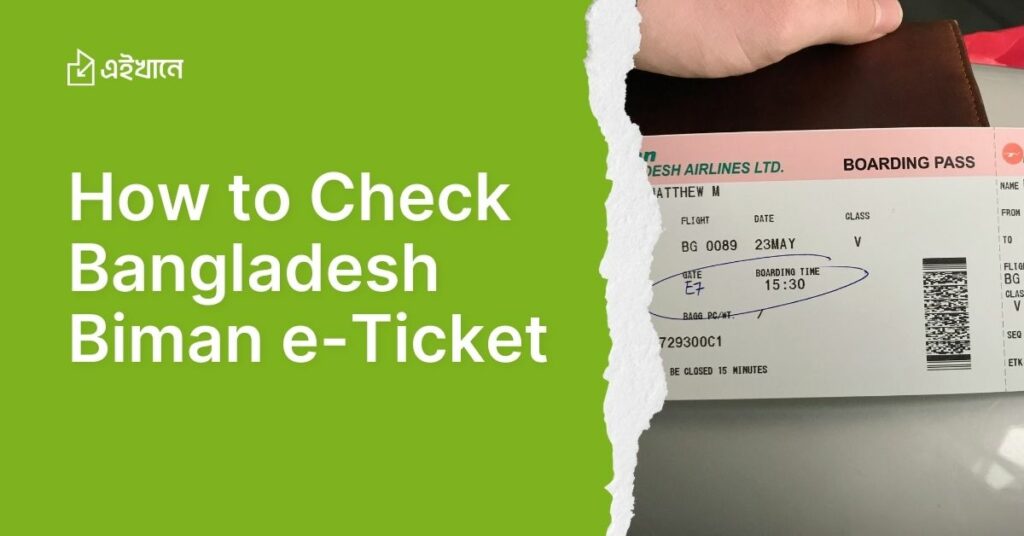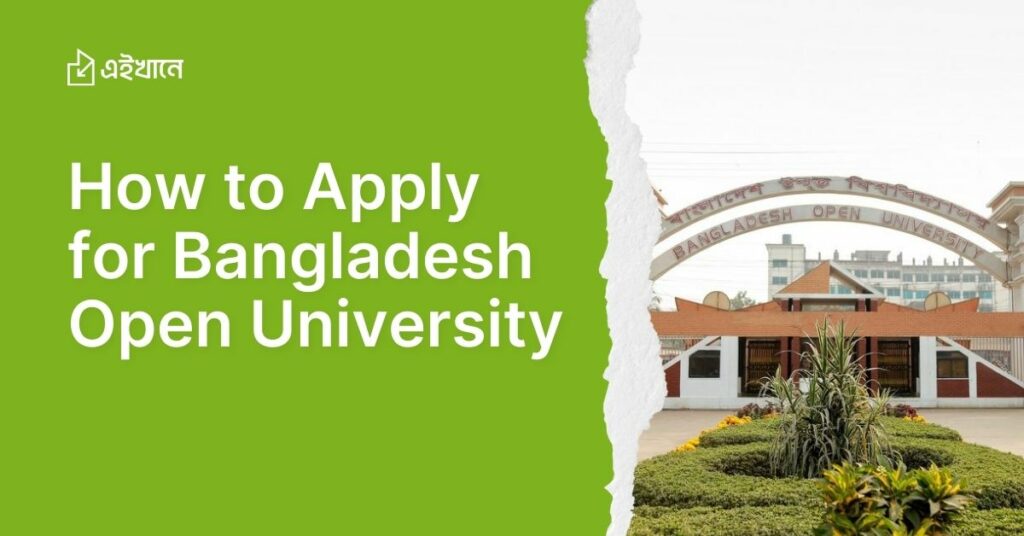Step-by-Step Guide to Obtaining a Bangladeshi Residence Permit in 2024
Step 1: Determine Eligibility
Before applying for a residence permit, it’s essential to ensure that you meet the eligibility requirements. The types of residence permits offered in Bangladesh include employment-based, investment-based, student residence, and family reunification permits. Each category has specific criteria such as having a valid job offer, being enrolled in an accredited educational institution, or being related to a Bangladeshi citizen or legal resident.
Step 2: Gather Required Documents
Once you confirm your eligibility, collect the necessary documents based on the type of residence permit you’re seeking. Commonly required documents include your passport, visa, completed application forms, employment contracts (for work permits), proof of funds, academic enrollments (for student permits), and any supporting documents for other eligibility criteria like family ties.
Step 3: Apply for an Entry Visa
Before applying for a residence permit, most applicants will need to enter Bangladesh with an appropriate visa. Depending on your purpose, you may need to apply for a work visa, student visa, or an investor visa. Submit your visa application at the nearest Bangladeshi embassy, along with the required documentation. Once your visa is approved, you can travel to Bangladesh to proceed with the residence permit application process.
Step 4: Submit Your Residence Permit Application
After arriving in Bangladesh, visit the Department of Immigration and Passport (DIP) office or the office of the Ministry of Home Affairs to submit your residence permit application. Ensure that all forms are properly filled out, and attach all supporting documents. You may also need to provide biometrics such as fingerprints and recent passport-sized photographs.
Step 5: Pay the Application Fees
Residence permit applications in Bangladesh typically require a processing fee. These fees vary based on the type of permit sought. Visit the official government website or contact authorities to get accurate fee details. Payments can usually be made by bank transfer or at designated payment counters.
Step 6: Await Processing and Approval
Once your application is submitted, you will have to wait for it to be processed and approved, which may take several weeks depending on the workload and specific permit type. During this time, ensure that you remain in adherence to Bangladeshi immigration rules, such as maintaining your legal visa status.
Step 7: Obtain Your Residence Permit
Once your application is approved, you will receive notification from the Ministry of Home Affairs or DIP office. You can then return to the same office to collect your residence permit card, which will allow you to legally stay in Bangladesh for the duration specified on the permit. It is important to remember that some residence permits will need periodic renewal, so always keep track of expiration dates.
Step 8: Register with Local Authorities (If Required)
In some cases, you might be required to register with local authorities after obtaining your residence permit. This step usually applies to long-term residents and involves submitting your information to local police stations or other governmental offices to help authorities keep records of foreign nationals living in the country.
Step 9: Renewal and Extension
Most residence permits in Bangladesh are issued for a specific period, after which they must be renewed. You should apply for renewal several months before your current permit expires to ensure continued legal residency. The renewal process requires similar documentation as the initial application, although it may be simpler since you are already in the system.
Essential Documents Required for Bangladesh Residence Permit Application
Valid Passport
A valid passport is one of the primary documents required for a residence permit application in Bangladesh. Ensure that your passport has at least six months of validity remaining from the date of submission, as well as sufficient blank pages for visa and immigration stamps. If your passport is due to expire soon, renew it before applying for the permit.
Visa
A relevant visa is required for entry into Bangladesh before you can apply for a residence permit. Based on the type of residence permit you are seeking—such as for work, investment, education, or family reunification—you must first obtain an entry visa under these categories. Some applicants may need to present proof of prior visa approval during their residence permit application.
Residence Permit Application Form
The Bangladesh residence permit application form is a crucial document that must be filled out accurately. You can obtain this form from the Department of Immigration and Passport (DIP) office or download it from official government websites. Ensure that all personal information, purpose of stay, and other applicant details are correctly entered before submission.
Proof of Accommodation
Applicants are generally required to provide evidence of accommodation during their stay in Bangladesh. This can include rental agreements, hotel bookings, or a letter of invitation from a Bangladeshi resident who will provide lodging. Proof of accommodation demonstrates that you have a place to reside during your time in the country.
Employment Contract or Letter (For Work Permits)
If you are applying for a residence permit based on employment, you must submit a signed employment contract or an official job offer letter from a Bangladeshi company. This document should clearly state your position, salary, and duration of employment, meeting the applicable labor laws in Bangladesh.
Enrollment Letter (For Student Visas)
For students seeking a residence permit, a letter of enrollment from a recognized educational institution in Bangladesh is required. The letter should confirm your admission status, course details, and duration of study, ensuring compliance with academic regulations.
Proof of Funds
Depending on the type of residence permit, you may need to show sufficient financial means to support yourself during your stay in Bangladesh. Applicants may be asked to provide bank statements, proof of income, or sponsorship letters demonstrating financial stability.
Police Clearance Certificate
In some cases, applicants will need to submit a police clearance certificate from their home country or their country of residence within a certain period. This certificate confirms that the applicant does not have any criminal record and is considered a person of good character.
Medical Reports (If Applicable)
Based on specific requirements, such as long-term stays or health-based restrictions, the authorities may request medical examination reports. Ensure that these examinations are done at accredited medical facilities, and submit accurate health certificates if required.
Passport-Sized Photographs
Most residence permit applications require multiple recent passport-sized photographs of the applicant. These photos must adhere to specific guidelines, typically including a white background, no headwear (unless worn for religious reasons), and correct sizing, as mentioned by the authorities.
Proof of Family Ties (For Family Reunification)
If you are applying for a residence permit based on family reunification, you will need to present proof of your relationship with a Bangladeshi citizen or legal resident. This can include marriage certificates, birth certificates, or adoption papers, as applicable. The documents must be verified by relevant authorities.
Fee Payment Receipt
After submitting your application, you will need to pay a non-refundable processing fee. Once paid, always retain a copy of the receipt as it will be needed when finalizing your residence permit application.
Understanding Work Permits vs Residence Permits in Bangladesh: Complete Guide
What Is a Work Permit in Bangladesh?
A work permit in Bangladesh is an official authorization that allows foreign nationals to be legally employed in the country. This permit is tied to your employment and typically requires sponsorship from a Bangladeshi company. The work permit not only permits you to work but is often a prerequisite for obtaining a residence permit if you wish to stay long-term in Bangladesh.
What Is a Residence Permit in Bangladesh?
A residence permit, on the other hand, grants you the right to live in Bangladesh for an extended period, usually beyond the typical visa duration. While work permits are specific to employment, residence permits can be granted for various reasons, such as family reunification, education, investment, or employment. Once obtained, a residence permit allows you to reside in Bangladesh as per the terms of the permit, irrespective of your employment status.
Do I Need Both a Work Permit and a Residence Permit?
Yes, in most cases, a foreign national who intends to work in Bangladesh will need a work permit, followed by a residence permit. The work permit allows you to engage in lawful employment, while the residence permit authorizes you to reside in the country legally. It’s important to note that a work permit alone does not grant you the right to establish long-term residency, which is why both documents may be necessary if you plan to remain in Bangladesh for more than a short-term project.
How to Obtain a Work Permit in Bangladesh
To obtain a work permit, you must first secure a job offer from a registered company in Bangladesh. Your employer will apply for the permit on your behalf at the Board of Investment (BOI) or Bangladesh Export Processing Zones Authority (BEPZA), depending on the type of company. You’ll need to provide your passport, visa, employment contract, and other supporting documents. The work permit is typically issued for one year but can be renewed.
How to Transition from a Work Visa to a Residence Permit
Once you have obtained a work permit and entered Bangladesh on a work visa, you can apply for a residence permit if your employment contract extends beyond the validity of your work visa. Visit the Department of Immigration and Passport (DIP) to submit your residence permit application, along with your work permit, proof of residency, passport, and other required documents. If your application is approved, you’ll receive a residence card that allows for legal long-term stay.
Validity and Renewal of Work and Residence Permits
Work permits in Bangladesh are typically valid for one year and must be renewed annually. Similarly, most residence permits are issued for a set duration, after which they must be renewed. Keep track of your permit’s expiration date and apply for renewals well in advance to avoid any interruptions in your ability to live and work legally in Bangladesh.
Penalties for Failing to Secure a Permit
Failing to obtain a work permit before starting employment or residing in Bangladesh without a valid residence permit can result in serious consequences, such as fines, deportation, and being barred from re-entering the country. Always ensure that both your work and residence permits are current and maintain compliance with all immigration regulations to avoid legal issues during your stay in Bangladesh.
5 Common Mistakes to Avoid When Applying for Bangladesh Residence Permit
1. Incomplete or Incorrect Documentation
One of the most frequent errors applicants make is submitting incomplete or incorrect documentation. This can significantly delay the processing of your residence permit or even result in outright rejection. Make sure to double-check that you have all the required documents, such as your passport, visa, and proof of accommodation, among others. Any missing or incorrectly filled-out forms can complicate the application process.
2. Overstaying Your Visa Before Applying for a Permit
It’s crucial to apply for your residence permit while you are still within the legal validity of your entry visa. Overstaying your visa before initiating the residence permit process can lead to fines, deportation, or being permanently barred from re-entering Bangladesh. If you foresee delays in your application process, consider applying for a visa extension to avoid overstaying.
3. Not Following Up on Application Status
Once you submit your application for the residence permit, it’s important to follow up with the Department of Immigration and Passport (DIP) or the Ministry of Home Affairs, especially if the processing time extends beyond the communicated timeline. Failing to follow up could result in overlooked issues or delays extending past your visa expiration date.
4. Providing False or Misleading Information
Providing false information on your application, whether intentional or not, can have severe consequences, including the rejection of your current application and a ban from applying in the future. Always ensure that all information entered on forms like your personal details, employment status, or financial situation is accurate and truthful. Authorities may cross-reference your data with other governmental records.
5. Ignoring Residence Permit Renewal Deadlines
Another common mistake is neglecting to renew your residence permit before its expiration. Many permits in Bangladesh require renewal every year or after a specified period, and late applications can lead to penalties, including having to leave the country. Keep track of the expiration dates and submit your renewal application several months in advance to avoid issues.
Timeline and Processing Stages for Bangladesh Residence Permit Applications
Stage 1: Initial Submission and Acknowledgment
Once you have gathered all the necessary documents and submitted your residence permit application at the Department of Immigration and Passport (DIP) or the Ministry of Home Affairs, the authorities will provide an acknowledgment receipt. This receipt confirms that your application has been received and typically includes an estimated processing time. Keep this document safe, as it may be required during follow-up inquiries.
Stage 2: Background Verification and Document Review
After submission, your application will undergo a background verification process. During this phase, government officials will review your documentation to ensure accuracy and legitimacy. This might include cross-checking your employment details, accommodation proof, financial status, and criminal record (via police clearance certificates). In some cases, authorities may request additional documents, which can extend the timeline.
Stage 3: Biometrics Collection (If Required)
Some applicants may be required to visit an immigration office to complete biometric procedures, depending on the type of residence permit. This usually involves capturing fingerprints, taking passport-sized photographs, and verifying personal identification details through interviews. Be sure to attend this appointment promptly if notified, as delays in biometrics can slow down the overall processing of your permit.
Stage 4: Processing Duration and Average Timelines
Processing times for a Bangladesh residence permit can vary significantly based on the type of permit and individual circumstances. For most categories, such as work or student permits, processing can take between 6 to 12 weeks from the date of submission. However, applications under investment or family reunification permits might take longer due to additional verifications required. It’s essential to remain patient during this period and refrain from overstaying your visa.
Stage 5: Status Updates and Follow-Ups
Throughout the application process, it’s important to follow up with the relevant authorities at regular intervals. You can track the progress of your application by contacting the DIP office or using online portals if available. If there are any delays beyond the standard timeline, consider visiting the office for a personal consultation to expedite the process or resolve any concerns that may have arisen.
Stage 6: Decision and Permit Issuance
Once all the reviews and verifications are complete, the final decision on your residence permit application will be communicated to you. If approved, you will receive a notification either via email or phone, and you will need to visit the DIP office or the Ministry of Home Affairs to collect your residence permit card. This card serves as the legal document granting you the right to reside in Bangladesh.
Stage 7: Post-Issuance Requirements and Validity Period
After successfully obtaining your residence permit, make sure to register with local authorities if applicable, especially for long-term stays. Most residence permits come with a validity ranging from one to five years, depending on the category. Be mindful of renewal timelines and begin the renewal process several months before your permit is set to expire to avoid lapses in legal residency.


